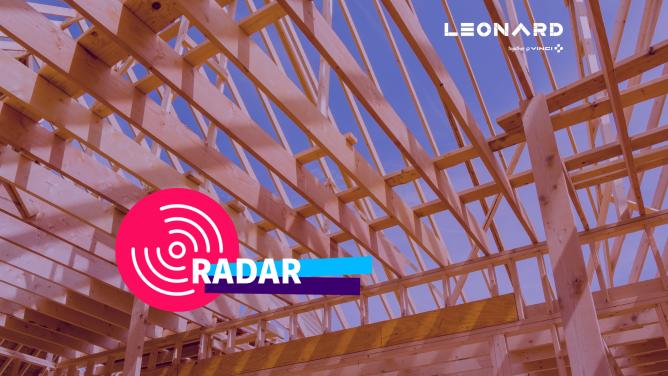American startup Von Perry looks to raise $2 million via crowdfunding for its 3D-printed geopolymer concrete homes
The American construction tech startup, Von Perry, has chosen an original method of financing… Rather than using investment funds, it’s opting for crowdfunding. The startup is currently looking to raise $2 million via the StartEngine crowdfunding platform, while its first proof-of-concept is expected to be finished in Texas in October.
Not only does Von Perry stand out because of its financing method, its innovative ambition is also drawing attention, as the company will be the first to combine 3D printing and geopolymer concrete to build homes. This type of material has the advantage of resisting the high Texas heat, while having a smaller footprint than conventional concrete. Meanwhile, 3D printing simplifies the production process and facilitates custom projects. Thanks to machines from Total Kustom, a three-person team can 3D print a house in four months, layer by layer.
Admittedly, Von Perry failed to hit that deadline on its initial housing project, but the current fundraising effort should enable the company to industrialise the processes. Part of the funds raised will go towards developing Arcus, a proprietary software platform aimed at consolidating the entire construction process. The platform will use artificial intelligence to make modifying house plans easier and to provide detailed instructions on the construction schedule and the different stages of the construction site. Six houses should be built soon, mainly in Dallas and the surrounding state.
A Scottish startup offers a lightweight construction solution based on recycled plastic blocks
Stirling-based Quick Block has just secured an initial investment of £310,000 to develop its lightweight construction concept. Quick Block has designed blocks made from recycled polypropylene, which can be purchased online and delivered flat. They require no tools for assembly – simply open up to create a box. The boxes are then filled with spoil or gravel to create concrete-free building blocks. The blocks are made from 100% recycled polypropylene that would otherwise go to landfill. They can be dismantled and reused repeatedly.
The idea is to offer a light, modular and environmentally-friendly alternative to traditional materials for different construction situations, such as for events or even humanitarian, security and military uses. For example, gravel-filled Quick Blocks have proven to be effective barriers against vehicle terrorist attacks.
Isol’En Paille sol’En Paille wants to decarbonize buildings with straw bale insulation
Based in Lys-Haut-Layon in the Maine-et-Loire department, French startup Isol’En Paille is looking to make the use of straw in construction the norm. To achieve this, the company has developed a standardized straw bale adapted to building sector constraints. At 22cm thick, the company’s bales correspond exactly to the size required in timber frame construction sites. But why? Well, straw is an excellent bio-based material and a natural thermal insulator. Not only is it renewable, but it naturally sequesters carbon dioxide which is absorbed by the crops as they grow.
The startup was founded in 2021 by Nicolaas Oudhof, a mining engineer specialising in eco-construction. The company aims to combat both the cause and the effects of climate change. Its solution has carbon-storing properties (the company estimates that eight tons of CO2 are absorbed from the atmosphere per insulated house) and helps protect against the cold (and therefore limit energy expenditure for heating in winter) as well as the heat, thanks to a thermal phase shift of more than 15 hours, thus adapting housing to the predicted increase in heat wave peaks.
What’s more, Isol’En Paille favours local supply: the company obtains straw from a 30-kilometre radius around its packaging site, thus limiting transport. In the future, the company wants to maintain this local model by setting up a network of regional micro-factories manned by six people, covered the whole country. The first locations in Brittany and eastern France are planned for 2023. Their objective is to cover the whole country within 10 years, with a workforce of 70 people.
There is more…
Agora raises $20M in Series A for its software package for real estate firms
Belgian-based PermaFungi raises €2 million to create new materials from mushrooms


